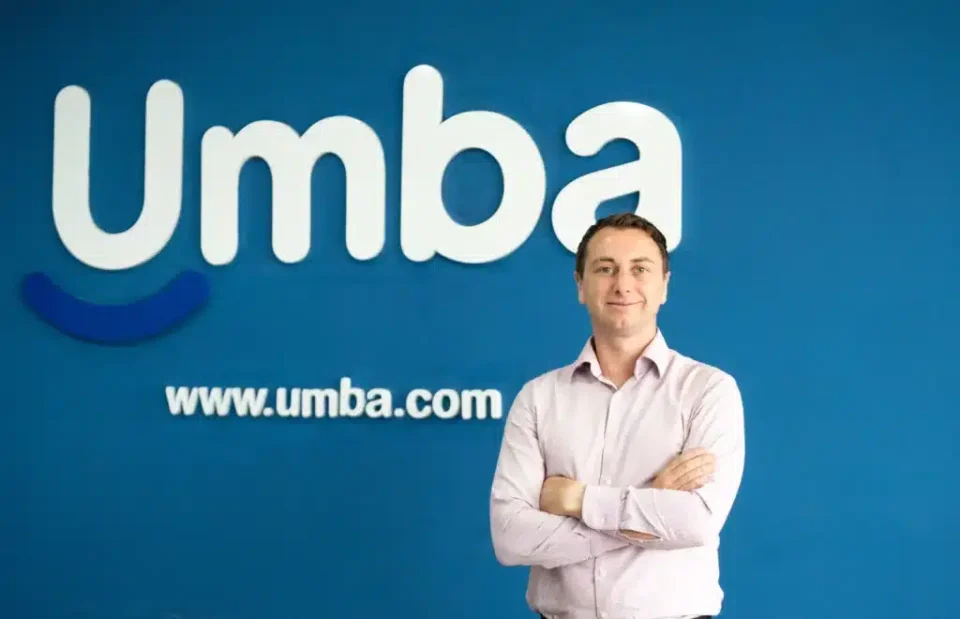Umba, a credit-led digital bank, has secured a $5 million debt facility from Star Strong Capital to expand its loan book in Kenya. The four-year-old fintech saw a sixfold increase in revenue last year, driven by growing demand for vehicle financing and loans for small and medium-sized businesses in Kenya.
Founded by Tiernan Kennedy and Barry O’Mahony, Umba officially launched in Kenya in 2022 following the acquisition of Daraja Microfinance Bank. Mahony exited the startup in 2023. Since its official opening in April 2023, CEO Kennedy reports significant growth alongside the expansion of the company’s product offerings.
With the support of key financial backers like Star Strong Capital, Kennedy believes Umba is now well-positioned to leverage this new funding to expand its market presence.
“Our Kenyan launch has exceeded expectations, with excellent lending performance. As the only pure-play digital bank in the market, we’re delivering a better way to bank for Kenyans through speed, accessibility, and tailored financial solutions,” Kennedy said.
While Umba initially entered the Kenyan market with a credit-led model similar to Nigerian competitors like Carbon and FairMoney, it has since evolved into a full-service digital bank. In addition to offering loans, Umba now provides fixed deposits, savings accounts, and business savings accounts, positioning itself as a viable alternative to traditional banks.
Kenya’s financial ecosystem is unique in comparison to most African economies. M-PESA dominates the market, processing nearly 60% of the country’s GDP. Moreover, the Central Bank of Kenya has placed a moratorium on new banking licenses, limiting entry for new players.
However, Umba holds one of the country’s 14 microfinance bank licenses through the Daraja Microfinance Bank acquisition, which gives it a competitive edge over other digital banks.
“We are solving almost all your financial problems and continuously adding products to our offering,” Kennedy explained. “I think we’re a very complete solution essentially doing what a large bank does, but digitally.”
In addition to its mobile app, Umba has also partnered with over 5,000 agents in Kenya, who play a crucial role in acquiring customers. These agents are also users of Umba’s services, contributing to a flywheel effect that further drives customer acquisition.
Co-founder issues? You’re not alone
Whether you’re just starting out or already dealing with co-founder challenges, this guide will help you avoid common mistakes, solve conflicts, and build a strong partnership.
For example, when agents at car dealerships help customers find vehicles and financing, their commission payments are deposited into Umba accounts, turning the agents into customers themselves.
Despite the challenges of Africa’s credit gap, where many startups face high impairment rates due to a lack of mechanisms to hold defaulters accountable, Umba says it has found success by focusing on productive lending.
Most of its loans go toward vehicle and SME financing. Vehicles financed through Umba are co-owned by the company, allowing it to reclaim the vehicles in the event of defaults.
Kennedy added that the demand for Umba’s lending services is currently exceeding the company’s capacity, which is why the new debt facility is essential.
Spring Hollis, Founder and CEO of Star Strong Capital, expressed confidence in Umba’s potential, stating, “We believe Umba’s innovative approach and customer-centric model position them to become a key player in Kenya’s fintech revolution. This debt financing will support their continued growth and ensure they remain at the forefront of delivering accessible, affordable financial solutions to underserved markets.”
While Umba had originally planned to expand into other African countries, the startup has paused these plans to focus on strengthening its position in Kenya and Nigeria.
